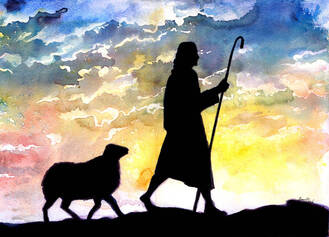 Young at Heart Message In 1992, a movie with the following brief description, as quoted from IMDB (Internet Movie Database), was released: “When a nightclub singer is forced to take refuge from the mob in a convent, she ends up turning the convent choir into a soulful chorus complete with a Motown repertoire, until the sudden celebrity of the choir jeopardizes her identity.” Does anyone know what movie this was? The movie was Sister Act. And yes, for those doing the math, it was released over 30 years ago. Of course the movie was released for entertainment purposes, and probably doesn’t actually offer much in terms of true theological conversation. But, at the same time, often movies, books, and other forms of entertainment can be a great launching point for theological or spiritual discussions. So, insofar as it might relate to today’s scripture, I want to share a short clip from Sister Act with you all today. Feel free to clap along or sing along if you feel so inspired. ☺ https://youtu.be/ctjG4MjJwEA?si=rOhtO9keLVS45roS What did you all notice in this clip? I have several observations but I’m curious if any of you noticed anything… … Here’s my list, and admittedly we could talk about any of these things as their own sermon: 1. They tap into the individual skills and talents of these choir members, and lift one another up. They’re not in competition with each other, but they’re proud of each other when they do something they’ve never done before. 2. The demographics of the people sitting in the pews do not in any way match the demographics of the neighbourhood outside of the church. 3. When people start coming in off the street, the priest kindly waves them in as a form of welcome. I’m not sure the abbess, had she been looking, would have done the same. There is probably much more we could say about this if we really dove in. But today, I want to focus on this “shepherding” the priest does of these people walking in off the street, and in particular, this notion that there is another flock just outside the doors of the church that are needing someone to meet them where they’re at. The Message So, why bring Sister Act into this sermon at all? Well, today’s scripture passages, and indeed the theme of every Fourth Sunday of Easter in the Revised Common Lectionary, are about Christ as the Good Shepherd. And admittedly, it can be difficult for people to truly understand what it means to be a flock shepherd when we are so far removed from a world in which shepherds are required in the way people understood them in that time period. Today’s scripture tells us, among other things, that Jesus has “other sheep that are not in this sheep pen.” He says, “I must also bring them together, when they hear my voice. Then there will be one flock of sheep and one shepherd.” This resonated with me, and it’s why I thought of Sister Act as an example of this. The church in Sister Act is half empty, first of all. But, more to the point, the people who are in attendance appear to be mostly older adults, and when the scene cuts to the street outside of the church, the people inside do not at all match the demographics of those outside the church. In other words, that priest is preaching to only a small flock, and there are sheep outside of the walls of the church that are not in that metaphorical pen. It wasn’t until Whoopi Goldberg’s character came into the church – someone who came from a world more like the one outside the church than inside – that this sleepy church started to shepherd to those quite literally just outside the door. So, when Jesus says he has other sheep not inside the pen, it’s possible that this is what he means. Certainly in his context, he’s talking about gentiles in particular - those who are not Jewish. In today’s context, in order for us to keep up with the new people Jesus aims to bring in, we have to learn to inhabit different cultures and look at Christ in new ways. Often the people who don’t belong to our own fold and hear Jesus’ voice in unfamiliar ways are the ones best able to help us hear it and understand it differently. I think we see this within our own community, but we also see it in the world around us. It requires us to open our minds and our hearts to others who may see the world differently. In conversation with many of you, and with so many others who have a deep faith, I’ve discovered that a concern that many people of faith have is a concern for others – in particular their children or grandchildren – who do not appear to have the same beliefs or the same deep faith. But often I wonder if faith just looks different for different people? If Jesus sees and knows that there are people outside of the pen that he is called to shepherd to, I wonder if the same is true for us? He doesn’t seem to indicate in any way that those outside of the pen are doomed or lost causes. Instead, he seems to embrace them, love them, and shepherd to them by meeting them where they are - outside of the pen. He does say he must bring them together, but he doesn’t say he would do that by necessarily bringing them into the pen. Perhaps he’d do that by bringing those in the pen to those outside the pen? If you watch the whole movie, the nuns in Sister Act actually do start getting outside of their church walls and ministering to those who live in the neighbourhood around the church. The requirement isn’t that people must come inside in order to hear God’s message. Instead, they go out and meet the people where they are – they serve the needs of the community, rather than expecting those in the community to come to them. And that’s a huge shift for this little convent. But it makes an even bigger difference to those outside of the church. If we truly believe that Jesus works in us, through us, and around us, then we also have to accept that is true for other people too. Jesus may be working in other people in ways that look very different than the ways Jesus works in us. And that’s because Jesus meets people where they are – whether that’s in the church or outside of it. Jesus goes to his flock. He seeks people out – even those who are in the depths of despair or hopelessness, or those who seem lost or unsure. And this should bring us comfort. Just because we find a connection with Jesus through a faithful church experience does not mean that is where Jesus meets everyone else. Jesus meets us all where we’re at. And, we are called to meet others where they are at, too. We are called to love and serve God, and we can do that by loving and serving others. So, may we learn to meet others where they are at on their faith journeys, wherever that may be. May we expand our hearts and our ideas of faith and service to others to include those outside the pen. May we seek out those who are different from us with inquisitive hearts and minds, exploring with curiosity and genuine care the ways in which Jesus shows up in the lives of others, and may we do all of that without judgement. Amen. Let us pray: Merciful God, who is more than we can ever imagine, give us a wider vision of the world; give us a broader view of justice; give us dreams of peace that are not defined by boundaries of geography or race or religion, or by the limitations of worldly structures and systems. Open our eyes and our ears that wherever we go, we may hear your voice calling us by name; calling us to serve, calling us to share, calling us to praise, so that we never give up on the promise of your kingdom, where the world is transformed, and all can enjoy life in all its fullness. Amen. ~ Prayer posted on the Monthly Prayers page of the Christian Aid website. http://www.christianaid.org.uk
0 Comments
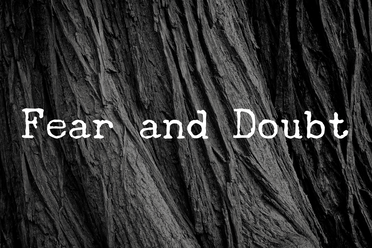 Young at Heart Message Would you believe me if I said I used to live with a cow whisperer? The cow whisperer had some kind of power over cows, and they would come to the cow whisperer no matter where they were in the pasture. They would follow the cow whisperer as she walked, and they would crowd around her to be as close to her as possible every time they saw her. Do you believe me? If I could prove it, would it be easier to believe? It can be hard to take my word for it when I say something like this because, while we might be able to envision it in theory, it’s harder to believe the cow whisperer had such a magic touch over a herd of cows. Maybe it happened once, and maybe that was a fluke. But to say it happened every time the cows were in the presence of the cow whisperer is more difficult to believe. So, I can understand why you might want proof. Why don’t we start with a couple pictures. Here she is with one cow… Do you believe me now? I will admit that seeing a picture of her with one cow might not be enough to convince you that she’s a cow whisperer. I could have easily manufactured that photo anyway – AI can do some pretty cool things these days. So let’s try another one… How about now?
It’s probably getting a little bit easier to believe that she’s a cow whisperer. But it’s also possible that those cows just happened to be standing by the fence when we walked by. And, nowadays, it’s still possible that I created that image using AI! So, I could understand why you might still be skeptical. Well, there’s one more thing I could do to prove to you that Lyra was a cow whisperer. I could show you a video… https://youtu.be/ZUZEQLSyXo8?si=MC8Q8TuPsWaQclXx And, just to make sure you believe me, because even in that last video, those cows could have just been hanging out there when we came along, I’ll show you one more short video: https://youtu.be/pplwGkpCPRY?si=RXVOawSX-eMNU8sC Now, I think this last video offers the best proof that Lyra was a cow whisperer. And, at some point, you kind of just have to believe me when I say this happened any time we saw cows. She was also the only dog I had who prompted the cows to come say hi every time she walked by. The cows didn’t care about me, or any of my other dogs. So, I hope this is enough proof, and you’ll believe me now when I say that I used to live with a genuine cow whisperer. It’s a gift, I know. The Message So, why am I sharing this silly story about Lyra and her cows? In today’s scripture, we heard the story of one of Jesus’ appearances to the disciples after his resurrection. And in that story, the disciples are initially afraid. This seems to be a common theme in the stories in which Jesus returns to the disciples after his death. But it also makes sense that the disciples would be afraid and full of doubt. This is not something the disciples are accustomed to experiencing. It’s not like people just rise from the dead every day. I imagine that if we experienced something like this, we would be full of doubt and fear, too. And, I think we would also want some significant proof, just like it’s easier to believe my cow whisperer story when you can see it. So Jesus offers the disciples proof. First, he tells them to look at his hands and his feet. Then, as though he knows this won’t be enough proof for them, he tells the disciples to touch him and find out for themselves. In other words, they don’t have to just take his word for it, just like you didn’t have to take my word for it when I said I lived with a cow whisperer. Once the disciples, presumably, are satisfied that Jesus is real, and their doubt is eased a bit, Jesus reminds them that he told them everything that would happen, and it was as it was prophesied. Once again, he’s offering them proof that he is who he says he is. And I am actually grateful for this passage. I think it could be read as though the disciples still have a weak faith. But I don’t think that’s what is actually happening here. I think Jesus is well aware that even though he told them he would be resurrected, it is very hard to believe something like that when it is not something you have ever experienced before. In fact, it’s something that most people would have deemed impossible before it happened. So I have to imagine that when Jesus first told the disciples, they wanted to believe it would happen. They had a sense of what Jesus meant, but it had to be a completely foreign notion in actuality. So their doubt is completely normal, and Jesus recognizes it and helps them to come to the conclusion that it is really him, and not a ghost or a figment of their imaginations. I appreciate this passage because it reminds us that doubt and fear, especially about faith, are normal, healthy responses. Doubt and fear are normal, healthy responses not only to faith, but to all kinds of things that happen in our lives. And there are many things that cannot be proven, at least not with the technology or the knowledge that we currently have. So when someone, even Jesus, tells us something that our human minds can’t seem to comprehend, it is normal to seek proof. The difficulty with many faith-based ideas is that proof is hard to come by. We might go our entire lives filled with questions and doubts because there are some elements of faith that we simply cannot prove. We can study and we can learn, we can listen to sermons and we can read the Bible and we can have deep conversations about faith and spirituality, but we can still feel these feelings of doubt and fear rise in us with regard to the unknown. And that is normal. It is healthy, and it is safe. It is human instinct to seek proof, not only for our own realities, but for the questions and doubts we carry as well. So the beauty of this passage is that Jesus understands human doubt and fear. He realizes the disciples have never experienced anything like this, and he offers a gentle reminder and proof of his existence in front of them. He helps them to feel less like they are seeing a ghost, and he helps them to feel more confident in his presence and in his promise to fulfill the prophecy. And he helps us to feel more confident in his grace and mercy, too. But I think most importantly, Jesus helps us to feel normal. He helps us to understand that our human desires, our human fears, and our human doubts are nothing to be ashamed of. There is understanding in this passage, and there is hope. We receive the grace that Jesus offers to all of us, and we know by this example that we can bring any doubt and fear we hold to God without feeling ashamed or like we’ve failed God. This passage reminds us that it is not possible to fail God. Jesus could have reprimanded the disciples and made them feel guilty and ashamed for doubting, or made them feel like failures. But he didn’t. He loved them endlessly, and we are loved in the same meaningful way. We are loved through our doubts and our fears and our uncertainties, and we receive God’s grace every day. We can come to God with all of this, and lay our burdens down and rest knowing that this love transcends all of our doubts and fears. May we rest knowing that we are loved this deeply every day of our lives. Amen. Let us pray: When we are blinded by anger, you pour out your love for all to see; when we wonder what tomorrow will bring, you call us to trust in you; when sadness fills our hearts, you plant gladness in our hearts. God of Easter: touch us with your grace. You show us your hands, so we may reach out to mend the broken; you show us your feet, so we may walk with those the world passes by; you show us your face, so we may know who our sisters and brothers look like. Risen Christ: touch us with your compassion. You open our eyes, so we may see God's love; you open our minds, so we may welcome God's Word; you open our lips, so we may be God's witnesses. Spirit of Hope: touch us with your peace. God in Community, Holy in One, open us to your presence, today and every day. Amen. ~ Prayer written by Thom M. Shuman - Lectionary Liturgies  Young at Heart Message Today is our final Sunday using the Wandering Heart sermon series. I debated whether or not I wanted to finish this series today, or last Sunday on Easter. But, I think today’s scripture gives us an opportunity to close out the series by bookending it and bringing it full circle. So, I’d like to begin with a retelling of today’s scripture. As I retell today’s scripture, I want you to think about how this passage relates to the story of Peter that we’ve heard so far. What about this story seems similar to the other stories we’ve heard about Peter? What is different? Where are the parallels? As I retell the story, think about these questions. After the retelling, I’d like a few volunteers to try to share what patterns we see in this story and how it’s similar to the other stories we’ve heard. Let’s begin: After Jesus had died and been raised from the dead, the disciples went back to their boats on the shores of the Sea of Galilee, where they had been fishermen before they met Jesus. They fished all night and caught nothing. Early in the morning, Jesus stood on the shore. He was far away and it wasn’t light yet so the disciples didn’t know it was him. Jesus shouted to the disciples on the boat, “Have you caught anything?” They told him, “No.” Jesus told the disciples, “Throw your nets on the other side of the boat.” They did, and the net was so full they couldn’t pull them all into the boat! It was then that the disciples realized the man on the shore was Jesus. Peter couldn’t wait for the boat to take him to shore—he jumped into the water with his clothes on, leaving the other disciples to bring in the boat and all the fish. When they reached the shore, Jesus had already started cooking breakfast over the fire. He gave the disciples bread to eat and cooked some of the fish they had caught. After breakfast, Jesus asked Peter, “Do you love me?” Peter replied, “Yes, you know I love you.” So Jesus told him, “Feed my lambs.” Again Jesus asked Peter, “Do you love me?” He replied, “Yes, you know I love you.” So Jesus told him, “Take care of my sheep.” And a third time, Jesus asked Peter, “Do you love me?” Peter was sad that Jesus had asked him again. Didn’t Jesus believe him? Peter told Jesus, “Lord, you know everything. You know I love you.” So Jesus told him, “Feed my sheep and follow me.” So, what do you think? What sounds familiar in this story to the other passages about Peter that we’ve heard during the Lenten season? … … The Message Today’s scripture is indeed reminiscent of the story we heard the very first week of Lent, when Simon Peter becomes a disciple of Christ. In that story, if you recall, Peter and his crew were out fishing all night and hadn’t caught any fish. When they return to shore, Jesus tells them to go back out, and reluctantly they do. And then, they catch so many fish that they almost tip their boat over. In today’s passage, we also see the disciples not recognize Christ initially, which is reminiscent of the story in which Christ asks his disciples who they say that he is, and they relay that Jesus has been mistaken for Elijah or John the Baptist. It takes them a minute to realize the man on shore is Jesus, but when they do finally realize it, Peter jumps into the water to start swimming to shore to reach him. This of course reminds us of the passage in which Peter steps out of the boat to try to walk on water toward Jesus, but ultimately begins to sink. Jesus cooks bread and fish for the disciples for breakfast, which is reminiscent of several different stories in which Jesus breaks bread and feeds his disciples. Finally, Jesus asks Peter if he loves him. And this is where the story seems to deviate from other stories of the disciples and of Peter thus far. But, upon closer inspection of this passage, I actually think this story is reminiscent of Peter’s denial of Christ. This isn’t Jesus’ way of reprimanding Peter or making him feel guilt or shame for denying him. I think this is Jesus’ way of offering Peter grace for his denial. It’s as if Jesus says, “Here’s my heart,” which washes over Peter’s three denials like a healing balm. This grace that’s offered to Peter is a reminder that no matter how far we wander, we can entrust our hearts to God, like Peter did. Once again, we see Jesus offer Peter abundance. Peter’s journey – like ours – is not linear. We see his story come full circle in today’s passage. We watch as God’s grace continues to circle back to Peter again and again, like a familiar chorus being played on repeat. It is almost as if Jesus is asking us the same question over and over again – Do you love me? Do we love him? Even though we might stray from time to time – even though our journey does not always follow a straight path – do we love Jesus and follow him? Jesus is offering Peter, and us, his grace in this passage. He is also offering a new command – to feed his sheep and to follow him. What might Jesus mean when he tells Peter to feed his sheep? I don’t think Jesus is referring to literal sheep that he’s asking Peter to feed. I think this is a much deeper and more profound call that Jesus is asking Peter to accept. So far, after Jesus’ death, the disciples have not been sure what to do now that he’s gone. So they do what they know – they return to the work that they were doing when they first met Jesus. This is natural for people who aren’t sure what to do next – we tend to return to what we know. But Jesus is asking Peter for more. Jesus is asking Peter to continue his work with the people. Jesus is telling Peter that if he does truly love him, then he will step outside of his comfort zone and become the new shepherd of Jesus’ flock. Peter’s call is not one that will be easy for Peter, and Jesus knows this. Jesus knows that Peter has not always been consistent in his faith or his trust. But I think Jesus also knows that Peter is ready now – ready to transition to becoming a leader and a guide who will continue to live out Jesus’ message of hope and of grace. The beauty and hope in this command is that whether our faith feels weak or strong, whether we are wandering on our path or steadfast and certain, we can always offer our love to Jesus, and we will always receive his love and grace in return. And even if we are unsure of the path before us, or we feel paralyzed from fear or uncertainty, Jesus is patient and understanding. Jesus waits on the shore and makes us a metaphorical breakfast, reassuring us that even if we deny him, or lose our way, his love for us is never-ending. He proved that to us last week by suffering and dying for us. We can rest assured, on this post-resurrection Sunday and every other day of our life, that Jesus loves us, cares about us, serves us, and forgives us. And this is the Good News that comes to us, knowing that Christ is alive and walks with us as we journey through this life. Amen. Let us pray: God of second chances and God of new life, we have spent our days wandering. Like Peter, we have milled about through nearly every state of faith. We have had courageous days and convicted days, learning days and questioning days. We have had days where we run to you, days for diving out of the boat, days for deep joy, and days where the pain of the world feels too close to bear. So as we bring our wandering hearts to you, we ask that you draw us in. Allow this story to spark something new in us. Allow this story of grace to give us pause and pull us in. Prepare us, O God, to follow you. Amen. * Portions of this sermon reference materials from A Sanctified Art LLC | sanctifiedart.org. Used with permission. 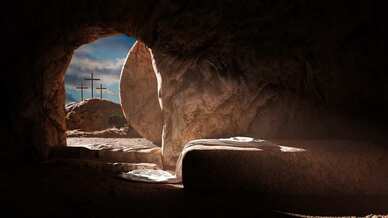 The Message For those of you who have not been able to join us through Lent, we have wandering with Peter on this Lenten journey. We have watched as Jesus called Peter to be a disciple by climbing into Peter’s fishing boat and taking it out on the water so he could teach the people on shore. We watched as, after a long night of fishing without success, Jesus tells Peter and his crew to go back out, and with heavy hearts, they try again. Then, we watched as Peter’s crew hauled in nets overflowing in abundance of fish. Through this experience, we saw Peter drop his livelihood and begin his discipleship with Jesus. Next, we journeyed with Peter as he tried to step out of the boat and onto the water and walk toward Jesus. Through a tremendous leap of faith, Peter took a risk and stepped out of the boat, and began to sink. But we also saw Peter try something daring in order to demonstrate his faith in Jesus, knowing that even if he failed, Jesus would extend his hand to him. We’ve wandered with Peter as he’s confronted his biases about what a Messiah might say and do. We’ve seen him ask so many questions, we’ve seen him doubt Jesus, and we’ve seen him deny Jesus. Peter is the rock on which the church is built. But he’s also imperfect and flawed – anxious and unsure, questioning and doubting. And today – on Easter Sunday – we might expect that, after denying Christ, Peter would cower in shame. We might expect him to run away and leave this wild journey with Jesus behind him. Instead, when he hears the news that the tomb is empty from this group of women, he doesn’t dismiss them like the other disciples do. He gets up and he runs to the tomb. When he peers into the empty tomb and he sees the linen cloth, he is filled with awe. I wonder if, as he ran to the tomb, he was feeling disbelief, or hope? Was he wondering if it was truly possible that Jesus rose from the dead? Peter had denied Christ three times. He was not there when Jesus died. So when a group of women come to the disciples telling them the tomb is empty, the others don’t respond with simple disbelief – they outright dismiss the women. While translations will render their reaction as “an idle tale,” “foolish talk,” or “nonsense,” the real meaning of the Greek word is “garbage.” The women announce Jesus’ promises fulfilled and the response—from the ones who were closest to Jesus— is, “yeah, well, that’s a bunch of rubbish.” There is so much truth and honesty in this reaction. After all, the good news frequently seems too good to be true. If the tomb is empty, if Jesus has been raised from the dead, then life as we’ve known and expected it is no longer. The world has been turned upside down (Acts 17:6). And if the world has been turned upside down, how do we even know how to live? If the disciples thought the resurrection was a pile of trash, what are people going to think when we confess belief in the resurrection? “Could it really be true?” is the question I think Peter asked himself, and with hope on his heels, he ran to the tomb to see for himself. Peter goes home wondering and it’s in that wondering that the meaning of the resurrection lies. The resurrection only makes sense when we remain amazed, marveling and wondering at the love of God that reversed death itself. We are not asked to explain the resurrection, offer proof for the resurrection, or make a case for the resurrection. Instead, like Peter, we live in wonder—for how belief in the God of resurrection truly can change the world, making it a more beautiful place. A place where asking questions, remaining awed, and maintaining a sense of wonder are important and healthy ways of being in the world. Amen. Let us pray: God of new beginnings, On that first Easter morning, the disciples struggled to hear the good news. Doubt clouded their minds. Negativity took root and hope vanished with a simple shake of their heads. Thank you for helping us to hear differently this morning. Thank you for opening our ears that we might hear the sound of Alleluias ringing through our hearts. Thank you for opening our minds so that the mystery and joy of Easter might feel within reach. Thank you for opening our hearts so that we might believe the unbelievable. And, thank you for helping us move closer to you today and every day. Amen. Portions of this sermon reference materials from A Sanctified Art LLC | sanctifiedart.org. Used with permission.  Young at Heart Message This morning, I’m going to put your eyes and your memories to work! As you can see, I have a large box here. In a moment, I am going to do a few things to this box, and I want you all to watch what I do VERY carefully. Remember as much as you possibly can about what I do. When I’m finished, there will be a test! Your job is to remember in as much detail exactly what I do so that you could tell me afterwards as best you can what happened. I will need three volunteers, one from each section of the church, to tell me everything they can remember about what happens. Are you ready? OK, pay close attention, starting NOW! [Pastor goes to one side of the box and draws a face with a smile, and then goes to the other side of the box and draws a face with a frown. The right side cannot see what’s being drawn on the left side, and the left side cannot see what’s being drawn on the right side. The middle of the room may or may not be able to see both sides.] All right, any volunteers from the left section want to tell me everything they can remember about what they saw? [This section of the room will see the picture with the frown.] How about the right section next? [This section of the room will see the picture with the smile.] And finally, someone from the middle section, tell me what you saw in the best detail you can. [This part of the room will see a mixture, so it depends on who responds.] [The purpose of this exercise is to demonstrate that sometimes, just seeing something from a different perspective can lead someone to recall what happened differently.] Hmmm, it seems each of you saw and remembered what I did a bit differently! Of course we know that human memory is not overly reliable… That’s why eyewitness testimonies are so fallible! This demonstration gives us a launching point to talk about today’s scripture and the events of Jesus’ triumphant ride into Jerusalem. Let’s dive in! The Message The scripture verses we read today were from the Gospel of John. This particular Gospel relays the events of Jesus’ entrance into Jerusalem a bit differently than the Synoptic Gospels do. I’d like to take a few minutes to compare some key parts of the different Gospels as they relate to this passage, and then talk about these differences a bit. It’s almost as though we are hearing four slightly different versions of this story, each version from a person who saw or remembered only portions of the story.
This actually happens frequently in the Gospel stories that are repeated in two or more of the Gospels. Either the authors really did have different viewpoints of the situations, or they were focused on portraying different elements of the story for the listener or reader. It’s likely some of both, but based on the priorities of the different writers of the Gospels in other stories, it makes perfect sense that each would be more focused on their own perspective of what is most important to share. Misunderstanding is a big theme in the Gospel of John. We (the readers today AND those witnessing these events in the moment) are not supposed to understand that God came to dwell with us in the flesh of a human body – not fully anyway. Also, at this point in the story, it is difficult to grasp what Jesus’ kingship is all about. John wrestles with this when he says “at first, Jesus’ disciples did not understand. But after he had been given his glory, they remembered all this.” In other words, John is foreshadowing for us how the disciples are going to respond in the end to the events that unfolded. But, it makes sense that they would not understand fully at this point, and we can appreciate John for pointing this out and reminding us that the full process of crucifixion, death, burial, and resurrection must be completed before the disciples can fully understand. We have seen throughout our journey with Peter this Lenten season that the culmination of Jesus’ ministry with his death and resurrection is the climax of the story – and the true turning point for the disciples, and especially for Peter. We will watch this journey unfold in the week ahead, but for now, we can rest in this passage from John that reminds us that even now, the disciples are still not fully understanding. And, as we take this journey together, we can wonder together how the disciples, and especially Peter, felt in these moments. How is Peter participating in this parade? What is he thinking about Jesus and the people cheering for him? Is he confused, once again, by Jesus’ actions? Is he wondering why Jesus is doing this, when he could instead choose to flee and save himself? Is he wondering yet how many of these people would turn on Jesus as he approaches his death? Is he wondering if he will be one of those who denies Jesus – out of fear, or external pressures? We don’t know – the scripture doesn’t tell us the answers to these questions. But, if we have learned nothing else from Peter throughout Lent, we have learned that he asked questions, and we have become more comfortable with our own desire to ask questions like these, as well. As we wave our palms today, we can wonder if we would be among the crowd cheering today, and also among those calling for Jesus’ condemnation on Good Friday. We cannot possibly know the answer to that question – it’s difficult to truly put ourselves in the shoes of someone who walked the earth over two thousand years ago. And yet, we can still wonder. As we approach Maundy Thursday and Good Friday, we can do the hard work of asking ourselves if we would succumb to the fear and pressures of the crowd. Would we stand up for Christ, or would we fold from the pressure and a desire to save our own skin? These are important questions, not because we are meant to feel guilty or ashamed of how we might respond, but because it is an opportunity for self-evaluation and self-reflection. Like Peter, we are not perfect Christ-followers all the time. And yet, Jesus tells us over and over again that he loves and forgives us. He tells us in words and parables, but most importantly, he tells us through his actions. Listen carefully during Holy Week – listen to the scriptures and stories that bring us to Good Friday and then to the resurrection on Easter morning. Christ is offering us grace, mercy, and forgiveness in all that he does for us, and for this, we choose to rejoice and follow him. Amen. Let us pray: God of grace, your Word is like a song. It is the melody that we long to sing, the refrain that we pray will get stuck in our heads. So as we contemplate todays message, we pray that you would allow us to sink into this song. Allow us to hear the truth in between the words. Allow the cries of the crowd’s “hosannas” to feel like our own. With open hearts and open ears we pray, Amen.  Young at Heart Message When I was a kid – maybe 10 or 12 years old - I lived on a cul-de-sac where there were three other houses besides mine. There was another family with two girls who were similar ages as me and my sister – the older girl was a year older than me, and the younger girl was in my sister’s grade. Behind my house was a line of trees, and behind that line of trees was a subdivision. Directly beyond those trees was another house where a girl lived who was also a year older than me. There were not a lot of kids my age who lived near enough to our house for me to get there quickly or easily. So often, the other kids I would play with were the two girls who were a year older than me, my sister, and the girl who was my sister’s age. The problem with this arrangement was that the two older girls would often bully me. I was a year younger than they were, so we didn’t “hang out” with the same group of friends at school. My sister and the younger girl were typically relieved from the bullying because they were young enough to be in a totally different school than me and the two older girls. So, I was often the one who was bullied in this “friendship.” And by “friendship,” I really mean a strange relationship which ebbed and flowed, and most often I was only “friends” with the two older girls when they needed or wanted something from me. Otherwise, we weren’t friends so much as I was the one who got picked on or bullied. I don’t recall what exactly they did to me one day, but I’d had enough. I didn’t know how to make my situation better, so I decided to write a letter to the girl who was the worst bully and put it in her mailbox. The letter, however, wasn’t supposed to be from me, per se. Instead, I wrote it as though I was one of the more popular girls in their grade, and as such, I was going to bully them if they didn’t stop bullying other people. It was, at best, a useless threat. Of course it was only intended to scare them into stopping their bullying and be nice to me. And of course, it didn’t work. The mother of one of the girls reached out to my mother and told her about the letter. My mom, then, asked me about it. I wasn’t good at lying, especially to my parents, so I began to cry and explain why I did it. My mom understood that I felt bullied, but she also said I needed to apologize to the girl I sent the letter to. This felt really unfair – after all, she had been bullying me! Nonetheless, we arranged an afternoon after school to go over to her house so I could apologize. I was mortified, I have to admit. I was also full of guilt and shame. So, we walked into the girl’s house, and I mustered up the courage to apologize for sending the note. After my apology, the girl just said “OK!” and that was the end of it. She said nothing else. She didn’t forgive me. She didn’t blame me or yell at me. Just “OK!” and all was well. It was awkward, and puzzling at the same time. In hindsight, I think she probably felt just as guilty and ashamed as I did. Her mom probably talked to her about bullying as well, and she probably wanted it to be over just as much as I did. But, neither of us really received closure or forgiveness. And, while I did have reason to apologize, it felt unfair that she had reason to apologize as well, but didn’t. She had been the one who was so mean to me that I felt like I had no other options! And yet, the incident and my apology taught us both an important lesson, I think, about how to treat others and about how to resolve conflict. I suspect that neither of us realized the lesson we were learning at the time, though. I can tell you that I kept the letter and I put it in a spot in my bedroom with a big note on it that said: Don’t do this again! This situation may seem silly as I look back on it today, but through these lessons we learn as young people, we somehow manage to move into adulthood with some skills for handling situations like this again if needed. And, we also learn lessons about forgiveness and bringing about a sense of wholeness. I didn’t receive forgiveness from this girl – not really. And she didn’t receive forgiveness from me. So how do these lessons and the lesson we heard in today’s Gospel message help us better understand forgiveness? How do these stories help us better understand how we learn and grow as people? The Message As I was researching for today’s sermon, I read an interview with Chanequa Walker-Barnes, a womanist theologian and clinical psychologist who is also Professor of Practical Theology and Pastoral Care at Columbia Theological Seminary. I wish it made sense to read the entire interview because she has so much of value to say about forgiveness. She offers the following definition of forgiveness as part of the interview: She talks about forgiveness as “an internal process that is directed outwardly. It’s directed toward another person, and it is the process of letting go of the hostility that we have toward a person that we perceive as having wronged us.” She goes on to say, “People often think forgiveness has to be contingent upon something the wrongdoer does — they have to repent, we have to reconcile, we have to restore the relationship, and they have to change… “…That keeps our emotional process held hostage to another person’s issues. Forgiveness is a way of taking our power back and saying, ‘I have my own feeling that needs to be done.’ Part of that [feeling] is my image of the other person, which is separate from the wrongdoer’s process. That’s even separate from the relationship. One thing understanding forgiveness as an internal process does is empower us to take control of that process.” In other words, when we think of forgiveness as only being possible if the other person does something to warrant our forgiveness, we may never find ourselves able to forgive. But, if we re-imagine forgiveness as an internal process, it becomes a process that we have control over, whether the other person acknowledges their wrongdoing or not. And, it allows us to move beyond the outdated notion of “forgive and forget,” because often, forgetting harm that was done is not possible. There are some people in our lives who will never admit they’ve hurt us. Hurt is defined by the person who feels hurt, so it is possible for us to feel hurt by something and for the person who hurt us to either not realize, or not care, that they hurt us. People can also be fully aware that they have hurt us, but be too damaged or unwilling to admit they’ve hurt us to ever be able to apologize or admit to wrongdoing. Hurt can also go both ways, like in the case of my example from when I was a kid. I was incredibly hurt and feeling quite bullied. And yet, the neighbour girl was probably hurt by my actions, too. And, frankly, I intended to hurt her because she had hurt me. So, forgiveness can be complicated. This is why Jesus’s answer to Peter’s question, “How many times should I forgive someone who does something wrong to me? Is seven times enough?” is not predictable – it’s infinite. In the translation we read today, Jesus says “not just 7 times, but 77 times!” In other translations, it appears as “70 times 7.” In other words, Jesus’s math is infinite. Forgiveness needs to be an internal process which works to heal our own hearts. This is true whether we are the one who was wronged and is trying to forgive someone else, or if we are the one who hurt someone and are seeking forgiveness. Jesus isn’t telling Peter that forgiveness is easy. If anything, he’s telling Peter that it can be incredibly difficult! And yet, we are called to seek forgiveness and to forgive. And, we can rest assured in our own grace and forgiveness in Christ. This is not to say that we should live our lives however we’d like, hurting people for the sake of hurting them! It is also not the case that we should not seek restoration and forgiveness. But regardless of how successful we are at asking forgiveness for our trespasses, and forgiving those who trespass against us, we are forgiven through Christ nonetheless. Grace abounds through Christ, even as we continue to seek understanding, forgiveness, and love for ourselves and for others. According to Dr. Terrence Lester, “Forgiveness is a boundless wellspring of grace. Repair is vital, both within ourselves and in our relationships with others… “…These stories encourage us to embrace the transformative power of forgiveness and work toward reconciliation and healing. They inspire us to open ourselves to the expansive grace of God. By doing so, we can create a world where forgiveness mends what is broken, and where the beauty of repair shines through, illuminating our shared humanity.” Amen. Let us pray: God of Grace, today we ask you to teach us how to forgive. We’ve learned today that forgiveness can be a difficult and deeply personal process. Teach us ways to offer forgiveness to others, even if they have not asked for it, in order to heal our own hearts. Likewise, teach us to forgive ourselves and recognize when we may need to ask for forgiveness from others. Help us to recognize that forgiveness can take time, on either end. Teach us how to become whole again, to work toward restoration of our souls, and help us remember that we receive Your grace even if we struggle with forgiveness, either for ourselves or for others. All of this we pray today in your name. Amen.  The Message When I was running my dog daycare, one thing was always inevitable. As soon as I would start thinking to myself, “wow, things have been running really smoothly lately,” or, “maybe I do actually know what I am doing,” something bad or challenging would happen, or something would come up that I had no idea how to handle. Every single time. I could never get too big of an ego, because as soon as I would start to feel pretty confident, God would humble me in one way or another. It was like whiplash, or a horrible roller coaster ride that never ended. It feels like we’ve been on a roller coaster ride with Peter, too. Today’s scripture came directly on the heels of last week’s scripture. Last week, we heard Jesus ask his disciples, “who do you say that I am?” And his disciples first tell him who other people say he is – John the Baptist, Elijah, or Jeremiah, perhaps. Jesus asks again, ”who do you say that I am,” and Peter answers him that he’s the Messiah. Jesus changes his name from Simon to Peter, and then tells him he’s the rock on which the church was built and gives him the keys to the kingdom. Now this week, we hear, quite literally in the very next line, this story in which Jesus tells his disciples what was going to happen to him – that he will suffer terribly, he will be killed, and he will rise again three days later. Then, Peter takes Jesus aside and tells him to stop talking like that. In Peter’s worldview and what he understands of the Messiah, God would not allow this to happen to the Messiah. So Jesus rebukes him, calls him Satan, and tells him to get away from him. What?! What just happened?? It’s like a rollercoaster ride and we just got whiplash! How does Peter go from being the rock on which Christ’s church will be built, to Satan in a matter of a few sentences? Well, what do we tend to do when our world unravels and our beliefs are tested? Often, we tend to cling to what we know. We’ve discussed in past weeks that Peter and the other disciples understand the concept of the Messiah from the worldview they have always known – that of the Jewish belief in the coming Messiah. Jesus telling them that he’s going to suffer, be killed, and rise again, is completely outside of their scope of understanding of what the Messiah should be and do. So, as Jesus foretells his death and resurrection, Peter protests. Peter is fixed upon the way he thinks things should go and he resists the pain of what is to come. At the same time, Jesus is fixed upon his calling, and he therefore calls Peter out. For all of us, there comes a time (or maybe several times) when our faith is tested and we have to face difficult and inconvenient truths. In these times, we may desire to take the easier path – the path with less pain or less difficulty or fewer obstacles in the way. In these moments, we may want to cling to the easier, more simplistic answers. But, what if instead of choosing the easier path, we welcomed complexity? What if we were able to stay fixed upon our convictions while also opening our minds to expanding our perspective or our worldview? This is essentially what is happening to Peter. His worldview and his concept of the Messiah still has not caught up to where Jesus actually is. He is essentially experiencing cognitive dissonance which occurs when a person holds two related but contradictory thoughts. Peter just declared that Jesus is the Messiah, but he still believes that the Messiah should look and act in certain ways. So when he sees and hears Jesus talk about things he doesn’t yet believe a Messiah should have to face, he doesn’t know how to handle it. And Jesus is faced with the difficult knowledge of his own pain, suffering, death, and resurrection. He’s not in a position to have anyone question this knowledge, because even though he knows it’s coming and accepts his fate, he doesn’t need anyone causing him to question his call to his mission. Between last week’s scripture and this week’s, we see tremendous growth on Peter’s part. He is faced with significant challenges to his worldview. We can probably relate to this – there are people we might encounter in the world, or situations we might encounter that do not fit our expectations or our worldview at all. When this happens, we may initially feel like Peter. We may be resistant to the newness of the concepts or the idea that there are people in the world who are very different than us. In those moments, we might be like Peter. We might want to pull the person aside and say “hey, what are you doing? This isn’t right and I don’t approve.” We might want to fight learning about new concepts because it’s outside the scope of understanding we have always known. But Peter shows us that when we encounter something that is outside of our scope of understanding, it is possible to adjust our understanding to include the new concept or person or idea. Jesus’ response in this passage may not feel very loving toward Peter. But I would argue that Jesus feels comfortable enough to respond this way because he loves and trusts Peter completely. Jesus trusts Peter enough to know that he is still struggling to understand concepts that had previously been foreign to him – or at least vastly different than what Peter was taught and what he has always known. And he trusts him enough to rebuke him because he has such high expectations for him as the rock on which the church will be built. Jesus trusts that Peter will be able to confront his worldview, be open to the complexity of the dissonance, and work on expanding his perception and understanding. And because he trusts him and loves him so deeply, he gives him the space to do this. Peter has an opportunity to learn from this, and to learn from Jesus. It reminds me of Morgan Freeman talking about how God answers prayers in the movie Evan Almighty. He says, “If someone prays for patience, do you think God gives them patience? Or does He give them the opportunity to be patient? If they prayed for courage, does God give them courage, or does he give them opportunities to be courageous? If someone prayed for their family to be closer, do you think God zaps them with warm fuzzy feelings, or does he give them opportunities to love each other?” Jesus was giving Peter an opportunity to choose to open his mind and expand his conception of what a Messiah should be. Just like each time I experienced whiplash when I was running my daycare, and I would just start to feel like I knew what I was doing, God would give me opportunities to learn even more. It often felt to me like God was just really trying to take me down a peg – or 10. But, each challenge was a chance for me to grow as a business owner, a dog trainer, and as a person. And, I would argue that each of these challenges set me up to become a better pastor, too, because they often helped me learn how to work better with people, and how to expand my worldview and step outside of my comfort zone. So what can we learn from Peter, once again, today? We experience challenges to our worldviews just like Peter did. And, we don’t always handle those challenges with grace, much like Peter’s initial reaction. And yet, despite the fact that God knows we will stumble sometimes – we will question and wonder and feel uncertain, and we might even pull God aside and say “what are you doing? This is too much for me.” And through all of it, God will not stop loving us. God might give us opportunities to grow and expand our worldviews, but it is done out of love. Even if in the moment it might feel to us like it’s too much, or like we are being tested, or maybe even that God has given up on us. But through all of that, God remains steadfast in his love for us, and today’s lesson is a beautiful reminder of that love. Amen. Let us pray: Listening God, If we could attach ourselves to you, we would. We would scribble your scripture onto our tender hearts. We would weave your good news into the fiber of our being. We would bind ourselves to you, but instead, we wander. Instead of attaching ourselves to you, we find ourselves swept up in the business of the day. Like a seesaw of faithfulness, we move back and forth, up and down, constantly trying to find you in the midst of it all. So thank you for speaking clearly to us now. Thank you for quieting the distractions long enough for us to affix ourselves to your good news. We are listening. We are hungry. We are hopeful. Amen. 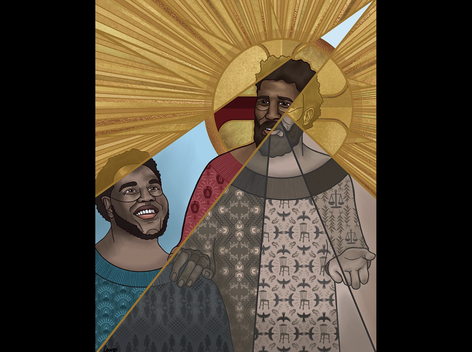 Young at Heart Message We are going to begin today’s message a bit differently than normal. One of the reasons I enjoy using Sanctified Art as a resource is because they provide art that is unique to each week’s theme. So, today, I would like us to look at and think about the art that goes with today’s scripture and theme. As we look at the art, I would like to provide some of the information about the piece that the artist provided in their statement about the image. Then, I’d like for us to think about how this image might relate to today’s message. So, let’s start by simply taking a few silent moments to look at the piece of art and take it all in. What meaning might we find in this piece of art? How does it relate to today’s scripture? The artist states: “In this image, I wanted to create a kaleidoscope of perception, imaging the ways Jesus is perceived in the context of this passage, like light broken down into a myriad of shapes and colors.” Let’s look a little closer at each of the elements the artist chose to depict. In the gold rays of light Jesus’ form is obscured by the metallic shine of God’s glory. In the gray and earth-tone rays he is seen in monochrome. Each of the earth-tone rays holds a pattern on Jesus’ clothing which represents a misunderstanding of who Jesus is. Starting in the monochrome slice on the left, honey, locusts, and baptismal waters misidentify him as John the Baptist. Within the next ray to the right, ravens, an empty chair, rain, and fires from the heavens misidentify him as Elijah. On the right, scales of justice and plants being uprooted and planted misidentify him as Jeremiah. Through the middle of the image, there is a ray of light where the image comes into full color that holds this moment of clarity where Jesus and Peter truly see one another. In this ray, Peter’s clothing holds symbols of his new identity: a rock upon which the church will be built and keys to the kingdom. Jesus’ clothing holds imagery—an oil jar and the light of the sun—representing the way Peter sees him as the Messiah and Son of the living God. Did you see all of that imagery when you first looked at the full piece of art? I definitely didn’t. But I can appreciate the explanation and now, when I look at the full image, I can see deeper meaning, especially as it relates to today’s scripture. Let’s look one more time at the whole image and take a moment to piece the entire thing together before we move into the next part of the message. The Message
What does all of this mean for us today? What is this story about Peter teaching us? We don’t really know from today’s scripture if this was a moment of clarity for Peter, if he was just regurgitating the answer he thought Jesus wanted to hear, or if he was trying to convince himself that dropping everything and following this man was worth it, but we generally consider this passage to be a breakthrough for Peter. He does still falter a bit as we get closer to Jesus’ betrayal, but this passage is definitely a turning point and a significant event in Peter’s life (and in Jesus’ ministry). Jesus fully sees Peter as more than Simon - fisherman and son of Jonah. He renames him Peter, the blessed foundation through which his ministry would take root and continue to grow. Jesus sees Peter through the eyes of God. And, Peter sees Jesus as more than a teacher and companion. He sees through the veil of confusion concerning Jesus’ identity. He doesn’t see him as the reincarnation of a former prophet, or another contemporary baptizer pointing the way. He names Jesus as the “anointed one,” the one his people have so desperately longed for. Peter proclaims Jesus as Messiah and Son of the living God. This mutual realization that both Jesus and Peter have in this passage, and the significance of the renaming of Peter and properly identifying Jesus as the Messiah is incredibly important. We must remember that the Jews conceptualized the idea of the Messiah differently than the ways that Jesus actually personified the Messiah. Jesus was not what they expected, so they spend most of his ministry resetting their expectations and questioning a lot of what Jesus does. The fact that Jesus asks Peter who he is, and Peter’s response identifying him as the Messiah is significant because Jesus has been misidentified several times previously as another prophet. When Jesus first asks the disciples who they say he is, they respond with what other people have been saying about him – that he’s John the Baptist, or Elijah, or Jeremiah. But Jesus presses them and challenges them to think for themselves. In doing so, he prompts Peter to identify him properly and clear up any confusion. Then, Jesus renames Peter. The idea of naming and identification carries tremendous meaning, both for us today and for Peter then. Peter is honored by being told he will be the rock on which the church is built. The change of his name here is a reminder that names are important, they carry meaning, and changing names can carry tremendous weight for people – both today and in the time of Jesus. People change names for reasons that are important and significant to them. The fact that Peter chose to go by his new name demonstrates how honored he felt that Jesus chose that name for him. There are several characters in the Bible whose names are changed. Each time, once the name has been changed, other characters in the texts immediately begin using the new name. It demonstrates that even in the ancient world, naming and properly identifying people carries significant weight. It is important, even to Jesus, and to the rest of us as well, to be properly identified. It is part of who we are, and helps us to create meaning in our lives and relationships with others. Peter was not only honored, but also humbled by being renamed and being told that he was the rock on which Christ’s church would be built. He also demonstrates the grace that Jesus offers to all of us. Peter wasn’t perfect, we know that. Jesus sought out Peter, Jesus rescued him, and now Jesus offers him grace and space to recognize him as the Messiah even as he questioned him previously. Jesus also knew Peter would deny him again in the future. And still Jesus honored him with his new name, the trust to be the rock on which the church would be built, and the key to Christ’s kingdom. This imperfect disciple who questions and wonders, and who carries throughout the Gospels a Wandering Heart is still honored and loved and trusted by Christ. And the Good News we receive through this passage is that if Christ can love this imperfect man this much, he can and does love us, too. Christ names us, identifies us, seeks us, rescues us, and welcomes us to join him on the mountaintop. All we need to do is accept his invitation. Amen. Let us pray: Holy God, For generations people have bowed their heads, have prayed the Psalms, have asked for your presence in their lives. For generations people have whispered, “May the words of my mouth and the meditations of my heart be acceptable and pleasing to you, O God.” For generations we have gathered here, we have quieted our minds, we have prayed to feel your presence in our midst. So, just like the generations before us, we turn our hearts to You. Still our busy minds so that we might truly comprehend what you have said to us today. With joy and hope we pray, Amen.  Young at Heart Message As most of you know, I’ve gotten into rock climbing since I’ve moved to Calgary. And, perhaps unfortunately for you, I’ve realized that rock climbing makes for good examples in sermons, weirdly enough. So, let’s talk about rock climbing for a minute! I’m not a stellar rock climber, but I am getting better at it, a little bit. I’ve been working really hard on learning to climb routes that have minor overhangs. There are lots of different ways that an overhang can look, but I’ll show you two examples: This is an example of an almost horizontal overhang: That might not seem like it would be difficult, but you’ll just have to believe me that it is – especially if you are just getting started on learning how to do overhangs. Now, this picture is from this past weekend, and that climb is at a climbing location that’s different than the place I usually go. So, I was able to do this climb because they have some overhangs at this location that are a bit better for beginners. But, what I really want to talk about is a climb I’ve been trying so hard to master at the location we usually go to. I haven’t been able to do it. Sadly, I don’t have any photos, but what’s happening is I can get to one particular spot, and I cannot figure out how to get over it to get to the top of the overhang. I’ve tried about 10 times now. My arms get too tired and weak before I can reach the next hold. Metaphorically, I begin to sink. Every time I try this climb, I think I’m going to do something differently, or I’m going to figure out a new way to move my arms so I can reach the next hold. Every time, there’s a voice that says it will be different this time – just have faith. And every time, I feel like I fail. Like Peter, I listened to that voice that says “climb,” and every time, I get to that same spot, and I falter and I start to sink. Unlike Peter, there’s no one to reach out a hand and catch me – or perhaps there is, in the sense that I am harnessed in and there’s no real risk of falling. The Message
Alright, I’d love to talk about rock climbing all day, but let’s shift gears and talk about Peter instead. There are two ways (at least) that I could preach about this passage on Peter, and of course pastors typically choose one of the two ways. I could preach about Peter’s lack of faith. Peter essentially says “hey Jesus, if you tell me to, I’ll walk on water toward you…really! Looks easy…” And then he starts to walk toward Jesus, and he becomes aware of his surroundings, loses confidence, and begins to sink. We could talk about how he loses faith in this moment and needs Jesus to rescue him. We could cast him as a sinful doubter. But looking at it this way leads us to believe that this is a failure on Peter’s part. More importantly, it leads us to wonder if, every time we struggle, God sees us as failures. I don’t care to look at it this way. First of all, Peter isn’t Jesus – he isn’t the Messiah, and he isn’t the Son of God. He’s a normal guy trying to figure out faith, muddling through life just like the rest of us. He’s wrestling with faith and trust in Jesus just like most of us do from time to time. Not to mention, of all the disciples in the boat, he’s the only one who even attempted to walk on water. Is he a sinful doubter? Or, is he the only one with the bold courage required to take a leap of faith—or to willingly step into the storm? I know that my physical ability to get over the overhang climb I’ve been wrestling with is limited. And yet, I will continue to try over and over again, and maybe someday I’ll get it. Or maybe I won’t, but that’s not what matters. Just like sinking isn’t what matters in Peter’s story. What matters is two things: 1. That Peter took a leap of faith and stepped out onto the water and tried something that defies the laws of nature and that no human is actually capable of doing in the first place, and, 2. That he knew that if he did falter, Jesus would not let him drown – that Jesus would rescue him. Peter took a risk because he trusted that Jesus would rescue him if things didn’t go as he expected. It might not have been pretty – he may have been wet and cold, scared and a bit shaky after the rescue. But he was certain Jesus would rescue him. I think it’s easy to get confused when Jesus follows up his rescue with “You surely don’t have much faith. Why do you doubt?” But, I don’t think this was intended to make Peter feel ashamed or feel like a failure. It feels more tongue-in-cheek to me. I could imagine Jesus giving Peter a sly smile here, knowing that what he just did was actually amazing and showed incredible faith. Doubt is a normal and important element in fostering a healthy spiritual life, and the fact that we see Peter experience it helps us relate to him. We experience doubt too – all the time! But, we also see Jesus extending his hand, reminding us that God is with us in every storm. And knowing that God is there waiting to rescue us when we need it is comforting. We cannot expect that life won’t ever be hard. We all have enough life experience at this point that we know this isn’t true. But, we can know that when we step off that boat, Jesus is waiting, hand outstretched, to catch us. We may not come out of that water looking like rainbows and roses because life sometimes wears us down. But if we reach out a hand and ask Jesus to rescue us, he is ready and waiting. What that looks like may not always be what we expect, and we may not always be able to see that it is Jesus until we are out of the water and safely on land again. Peter shows us that doubt and questions are not a reason that Jesus would leave us to flounder on our own. The storm is raging around Peter, the wind is howling – of course he’s going to experience fear and doubt. That is a very normal part of human existence and of our faith journeys. The fact that we get to be flies on the wall – or perhaps seagulls in the air - as we watch Peter struggle with the same things we do is helpful for us. It helps us to feel normal when we have questions, or when we step off the boat and suddenly feel like we’re in danger. It is reassuring to hear the Good News from Peter’s story – that Jesus seeks us and reaches out to rescue us from danger. Jesus reaches for us even if we have not yet extended our hand toward him. So, when the storm is raging, when the wind is howling, when you feel like your attempts to stay on the water are feeble at best, and impossible at worst, know that Jesus reaches for you through it all. Even if you don’t have the energy or the courage or the strength, even if you feel like your faith is shaken, Jesus is there to rescue you. He may be difficult to recognize because he may reach out in many different ways. But he is always reaching for you. May you take comfort in knowing that no matter how turbulent the storm may be, Jesus is reaching out his hand for you. Yesterday, today, tomorrow, and always, Jesus has been there and will always be there for you. Amen. Let us pray: God, we often have Wandering Hearts like Peter - one moment, we feel confident in our faith and certain that nothing could cause us to sink. The next moment, we find ourselves in sinking. In these moments God, we are so grateful that you are there to reach for us, to pull our heads above water, and to rescue us from danger. God, sometimes when we are sinking, it can feel to us like we’re failing you. But you’ve shown us that you don’t see it as failure. You see it as a leap of faith - a chance to try and even if we don’t succeed, we’ve demonstrated our faith in you by simply trying. We pray, God, that you will never let us sink and you will always reach for us when we feel uncertain, afraid, or like the storm around us is too much to handle. Rescue us from danger, again and again. In Jesus’ name we pray. Amen.  Young at Heart Message Like many of us, Peter has a Wandering Heart. His journey is not polished, or linear, or perfect, but he is always tethered to the love of God. When you look closely at Peter’s story, you find Jesus at each step along the way—offering him abundance, catching him when he begins to sink, challenging him when he stands in the way, washing his feet, predicting his betrayal, and offering him agapē love. This Lent, we’re joining Peter in figuring out faith. We’re not idolizing or vilifying him. Instead, we’re hoping to wander alongside him, open to what we might learn about Jesus (and ourselves) by stepping into Peter’s shoes. I don’t know if you have ever literally stepped into someone else’s shoes, but it can be a rather unpleasant (and sometimes smelly!) experience! Often, trying to figuratively step into someone else’s shoes can be quite difficult, because we can only approach life by looking through our own lens. Of course, we try to look through the lens of someone else, but it isn’t always easy. So, let’s look at today’s scripture and try to put ourselves in Peter’s shoes for a moment. I’ll re-tell the scripture reading and insert some questions we can ask as we ponder the story again. Let’s look at the story in a bit better detail: One day as Jesus was by the Sea of Galilee, people began to crowd around him, trying to hear what he had to say. On the shore, Jesus saw two boats where the fishermen were washing their nets after a long night of fishing. Imagine how it might have felt to come back from a long, unsuccessful night of back-aching labor trying to catch fish for a living. Jesus climbed into the boat that belonged to Simon Peter and asked him to take it out into the water so he could teach the people who had come to hear him speak. Now, imagine that this fishing boat is your only means of feeding your family and earning a living, and Jesus is asking to borrow the boat. After he was done teaching the people, Jesus told Simon Peter, “Take the boat into deeper water and let out your nets so you can catch some fish.” Simon Peter told Jesus, “Sir, we've been out here all night trying to catch fish but our nets have come up empty.” How might Peter have felt? He does this for a living, he was out all night with no luck, and now someone who knows nothing about his trade is telling him to go back out again. “But if you say so, we’ll try again.” So Simon Peter and the other fishermen on the boat let out their nets. Soon they caught so many fish that their nets began to break! They called to their friends in the other boat to come help them with their enormous catch. Imagine the trust and faith these men must have had to go out again despite an entire night not catching any fish! And, how well their faith was solidified by catching more fish than they could ever imagine. Both boats were overflowing with fish, and they were all amazed. When he saw this miracle, Simon Peter bowed down before Jesus and said, “Go away from me, sir. I am not worthy to be in your presence.” How difficult might it have been to humble himself like this? He initially questioned Jesus, and now he had foot-in-mouth syndrome. But Jesus said to Simon Peter, “There’s nothing to be afraid of. From now on you will catch people instead of fish.” When the boats arrived on the shore, Simon Peter and his fellow fishermen left their boats behind and followed Jesus. What level of commitment and trust in Jesus did these men have to have to give up their entire livelihood – the only way they have ever known to earn a living and feed their families – in order to follow Jesus? Would this be easy for us to do? Hopefully, we can acknowledge that stepping into someone else’s shoes – especially someone who lived thousands of years ago – might not be easy.
And hopefully, we have also learned to ask ourselves some deeper questions as we read the stories in the Bible. It can be a valuable lesson to try to ask how we might feel if we were in the shoes of someone else! The Message As I mentioned earlier, our sermon series for Lent and Easter is going to be following Peter as he interacts with Jesus throughout Jesus’ ministry. For those of you who are familiar with Peter – also known in the Gospels as Simon Peter and Cephas - you may know that he goes through several ups and downs. One moment, he’s a hero, and the next, he’s a goat. In today’s scripture, it is important to note that Jesus doesn’t seek out trained rabbis and priests to be his disciples. Instead, he calls a few Galilean fishermen to follow him and join his ministry. The men Jesus called to be his first disciples were accustomed to hard physical labor. They owned their businesses, which had been handed down from their fathers. Leaving the trade would not have been an easy transition for these men. And yet, after they do as Jesus told them and drop their nets once more, they can’t help but be convinced of their call. They haul in more fish than they could have ever imagined, especially after an unsuccessful night of fishing. When Jesus tells Simon “Don’t be afraid! From now on you will bring in people instead of fish,” no one really knows what to expect. And yet, the scripture tells us “they left everything and went with Jesus.” Jesus sought these men specifically. He did not seek out powerful, influential people who were knowledgeable about theology or people who were good at evangelizing. Jesus sought out imperfect, flawed people to become his first disciples. People like Simon Peter, who would question him and feel fear and uncertainty. Jesus sought people who would struggle to understand the work they were called to do, and who would struggle to understand the reason Jesus would have to suffer and die on the cross. Jesus knew these disciples would struggle. He knew one of them would betray him. And yet, he sought them anyway. And the Good News for us is that Jesus seeks us, too. And if Peter teaches us anything throughout this sermon series, it will be that we don’t need to be perfect in order for Jesus to call us and seek us. We don’t need to be perfect, and he doesn’t expect us to. He didn’t expect perfection from Simon Peter or his other disciples, and he doesn’t expect it from us either. We can follow Jesus with Wandering Hearts, just like Peter, and Jesus will love us, guide us, teach us, and not let us stray too far despite our Wandering Hearts. I am looking forward to Wandering with Peter through this Lenten journey, and I hope you are too. As we follow Peter and his interactions with Jesus, we are invited to look deeper into our own hearts and recognize ourselves in Peter’s journey. May we journey together, engage in conversation, and learn together this Lenten season. Amen. Let us pray: God of goodness and love, we are so grateful you sent your Son Jesus Christ as a teacher and guide. We are grateful that He sought Wandering Hearts like Peter because it helps us feel more at ease with our own Wandering Hearts. Jesus allows us to settle our hearts, to be exactly who You created us to be, and to do what we are called to do without guilt or shame about those things that make us imperfectly, beautifully human. For all of this, we are eternally grateful. In Jesus’ name we pray. Amen. |
AuthorRev. Jamie Almquist is the pastor at Good Shepherd Moravian Church in Calgary. Archives
July 2024
Categories
All
|

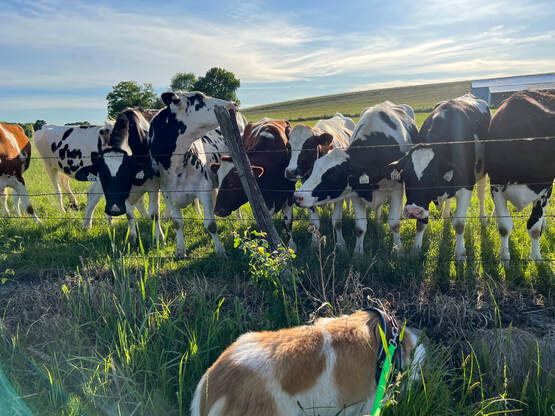
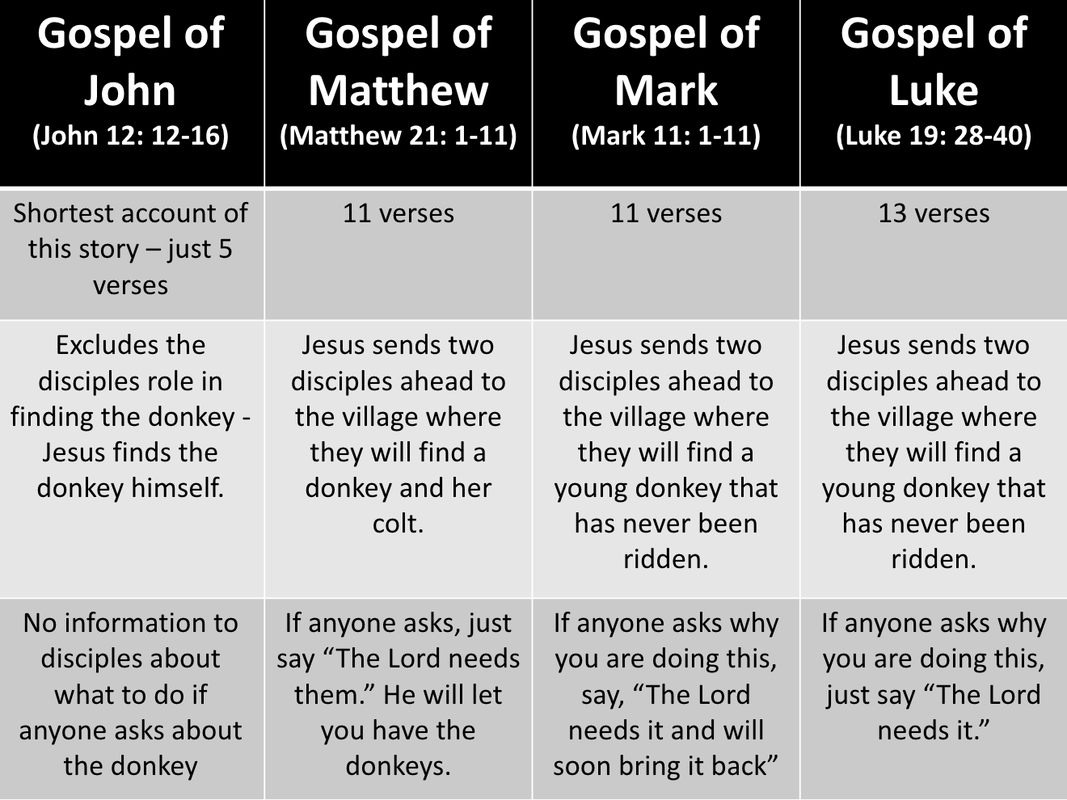
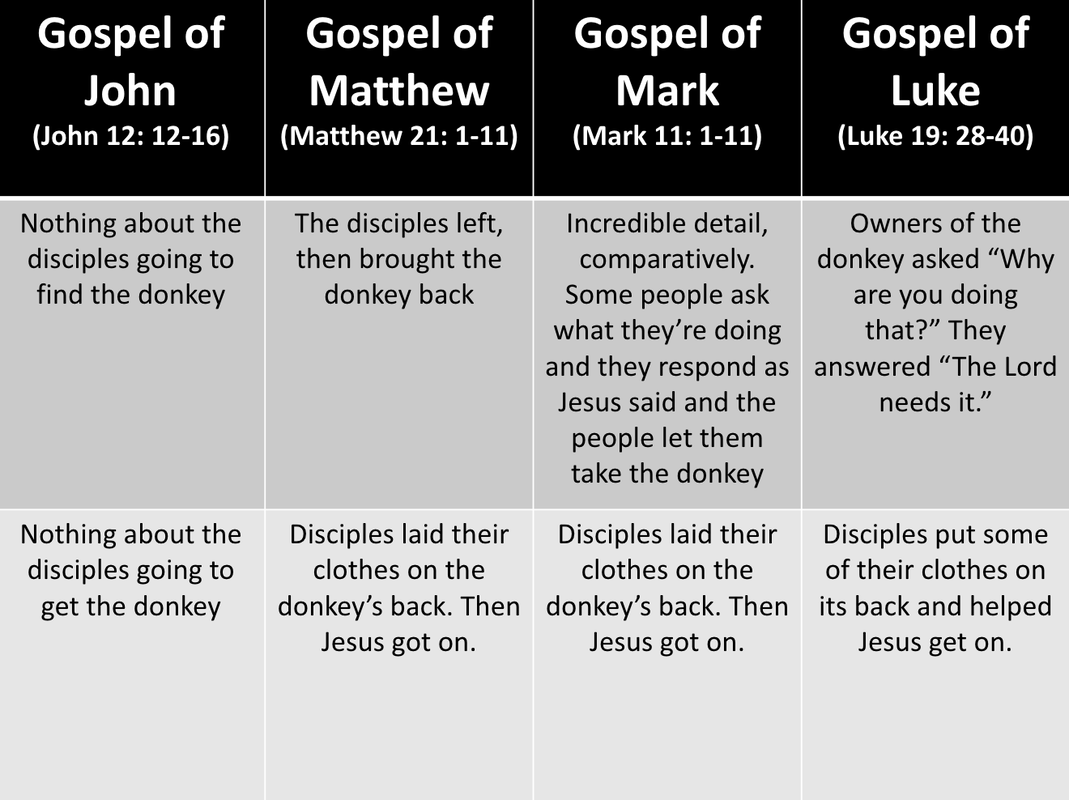
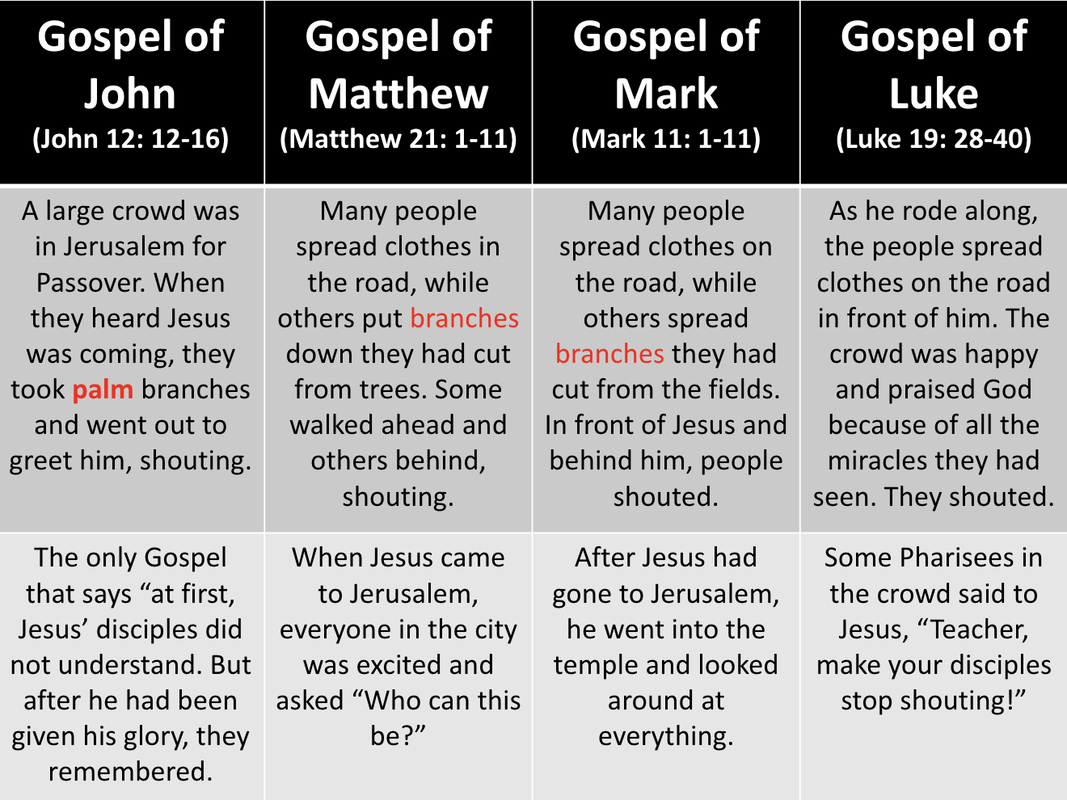
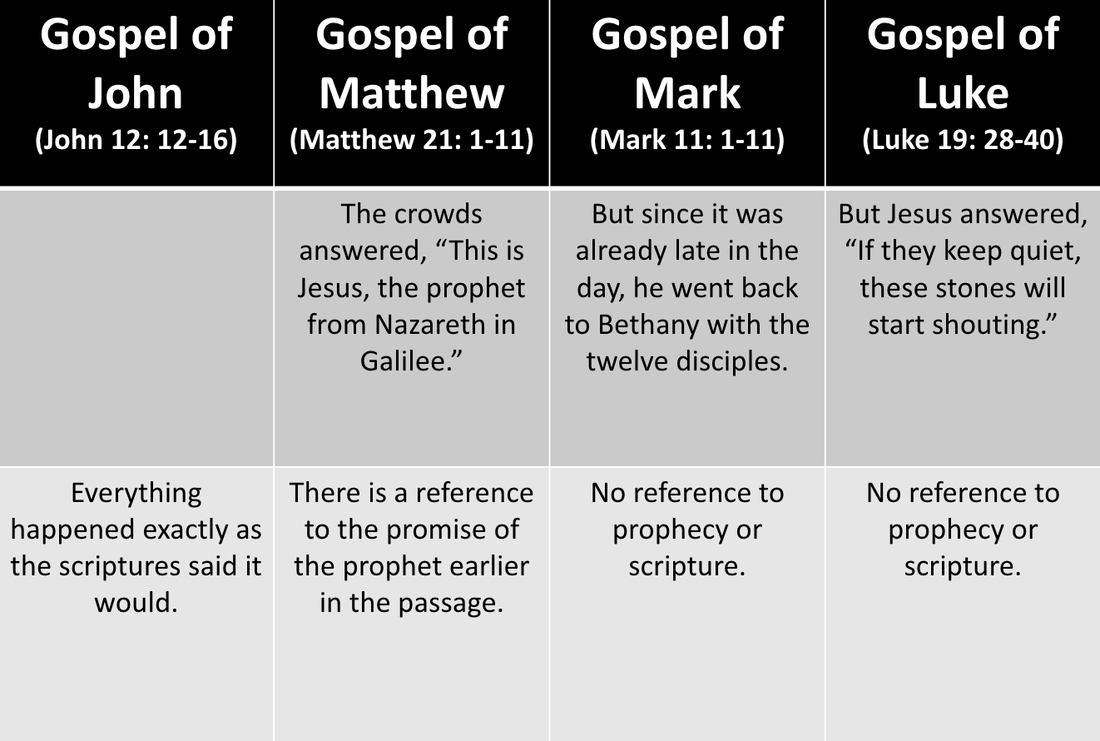
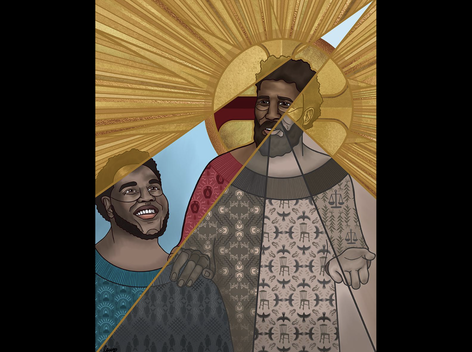
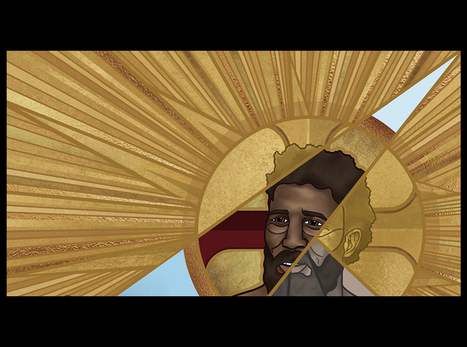
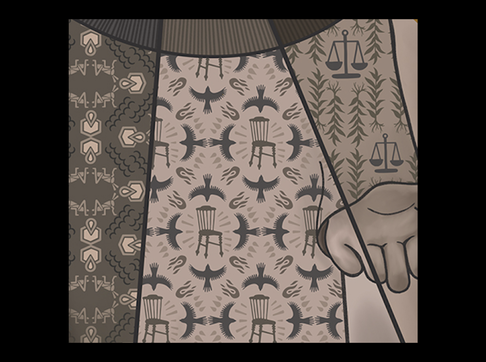
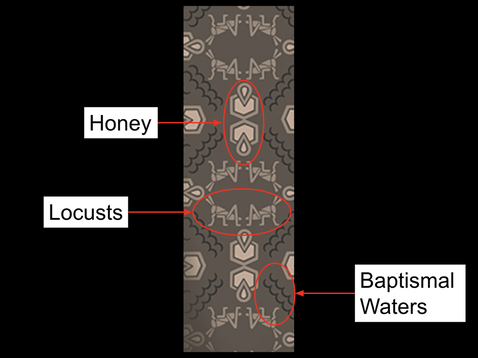
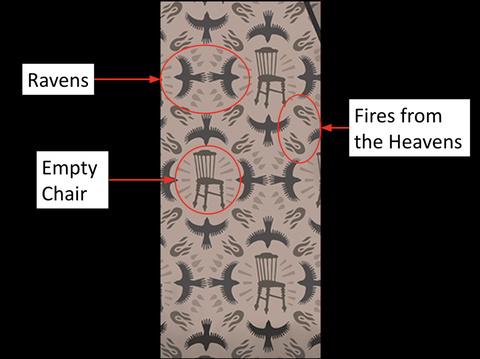
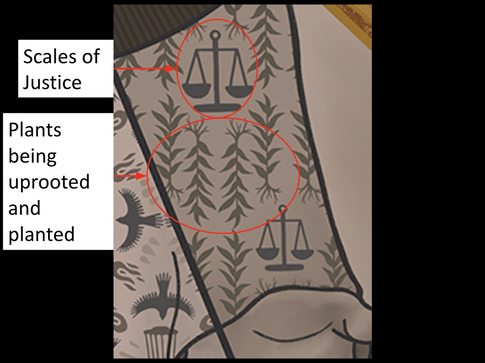
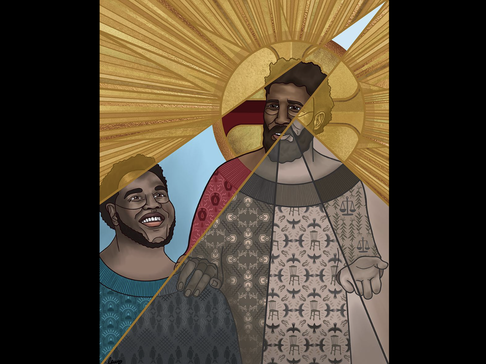
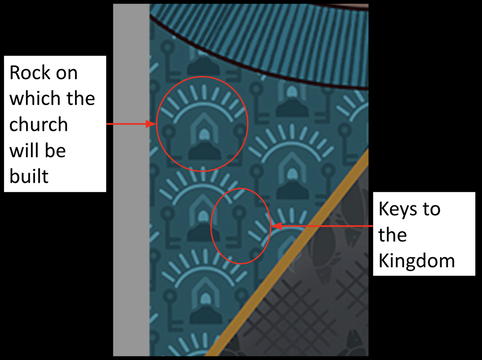
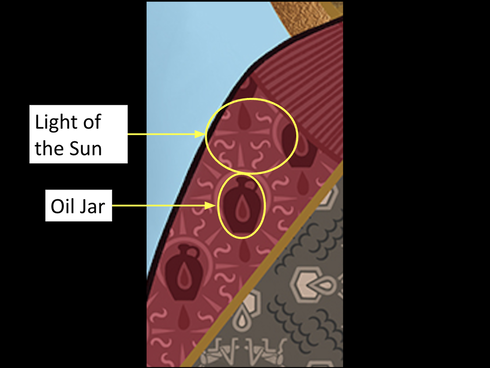
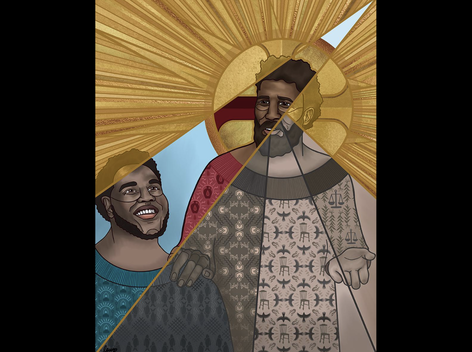

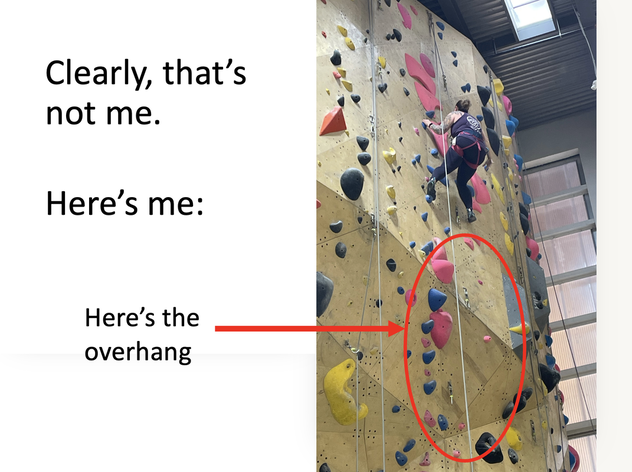
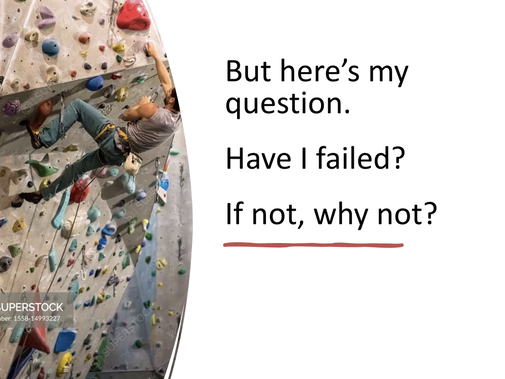
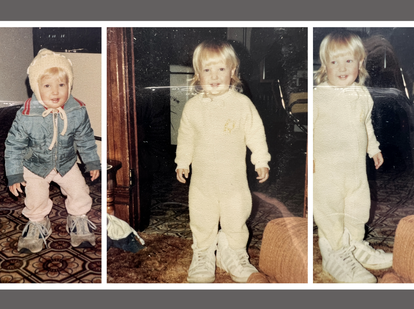





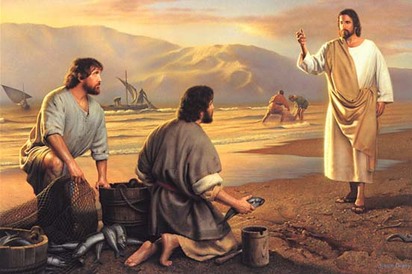
 RSS Feed
RSS Feed